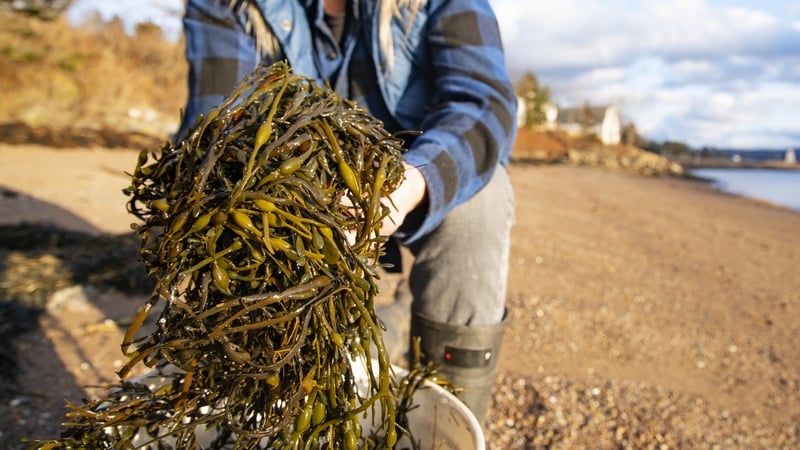Ireland’s first seaweed association has been launched to take advantage of what the group said is the untapped potential of seaweed farming for the country.
Inspired by the Norwegian Seaweed Association model, the Irish Seaweed Association aims to unite industry stakeholders, policymakers, and researchers to grow seaweed farming as a nature-positive, economically viable, and community-driven sector.
The global seaweed industry is projected to reach €22 billion by 2028, and with Ireland having more than 7,500km of coastline, the association said Ireland is uniquely placed to benefit from it.
Chair of the Irish Seaweed Association Gareth Murphy said Ireland can be a “world leader in restorative ocean farming, but only if the government implements the 2017 Aquaculture Licensing Review recommendations – without action, we risk losing jobs in coastal communities and seeing innovation move elsewhere”.
“The Irish Seaweed Association will play a vital role in uniting industry, research, and policymakers to drive innovation and sustainable growth in the sector.”
Seaweed is a marine algae that grows close to seashores, and it has a variety of uses.
It is one of the fastest-growing food categories in Europe and is especially rich in iron.
It is also widely used in cosmetics and beauty products.
We need your consent to load this comcast-player contentWe use comcast-player to manage extra content that can set cookies on your device and collect data about your activity. Please review their details and accept them to load the content.Manage Preferences
Seaweed can also be utilised as a fuel, while it has considerable environmental benefits in terms of carbon capture and biodiversity.
Professor in Zoology at Trinity College Dublin Nessa O’Connor said: “Seaweed farming requires no freshwater or additional fertilisers and has far less environmental impact than land-based agriculture or other forms of aquaculture. When practised sustainably, seaweed farming could even help improve local habitats, biodiversity and water quality.”
Hosted by the Centre for Social Innovation at Trinity Business School and Trinity’s School of Natural Sciences, the Irish Seaweed Association is a spinout from the EU Horizon-funded research project C-FAARER.
It is supported by partners including Trinity College Dublin, the Norwegian Seaweed Association, Nofima, Sea Going Green, Redrose Developments, and Horizon Nua.
The organisation will aim to help secure funding, expand market access, and drive automation, processing advancements, and new product development.
One of its goals will also be to ensure coastal regions benefit directly from the sustainable development of the seaweed industry.
However, Research Fellow at Centre for Social Innovation at Trinity Business School Dr Dharm Kapletia said the seaweed sector in Ireland faces a number of challenges “including complex licensing procedures, fragmented governance, limited access to processing facilities and uncertain market demand”.
“The Irish Seaweed Association will serve as a unified voice for the sector, advocating for coherent and inclusive policies, investments, as well as facilitating knowledge-sharing and collaboration.”




